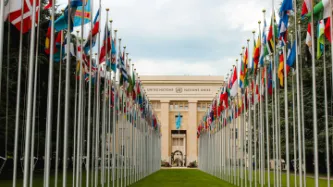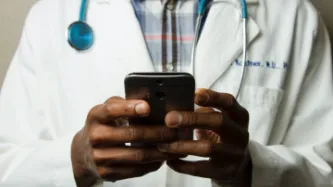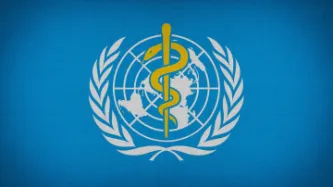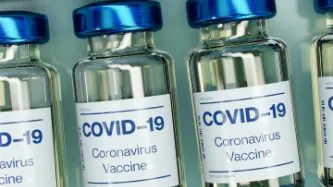Search
Content type: Advocacy
Our submission made the following recommendations to the Committee regarding the Kenya:Review and amend the proposed digital identity system, the Maisha Numba, to ensure it aligns with Kenya’s national and international human rights obligations in its design and implementation, and adopts legal, policy and technical safeguards to prevent exclusion and marginalisation.Ensure that measures taken to develop digital public infrastructures abide by Kenya’s national and international human rights…
Content type: Long Read
IntroductionHarnessing new digital technology to improve people’s health is now commonplace across the world. Countries and international organisations alike are devising digital health strategies and looking to emerging technology to help solve tricky problems within healthcare. At the same time, more and more start-ups and established tech companies are bringing out new, and at times innovative, digital tools aimed at health and wellbeing.
Content type: Long Read
Table of contentsIntroductionWeighing the (potential) benefits with the risksPrivacy rights and the right to healthThe right to healthPrivacy, data-protection and health dataThe right to health in the digital contextWhy the drive for digitalImproved access to healthcarePatient empowerment and remote monitoringBut these same digital solutions carry magnified risks…More (and more connected) dataData leaks and breachesData sharing without informed consentProfiling and manipulationTools are not…
Content type: Advocacy
Privacy International (PI) welcomes the opportunity to provide input to the forthcoming report the Special Rapporteur on contemporary forms of racism, racial discrimination, xenophobia and related tolerance to the 56th session of Human Rights Council which will examine and analyse the relationship between artificial intelligence (AI) and non-discrimination and racial equality, as well as other international human rights standards.AI applications are becoming a part of everyday life:…
Content type: Advocacy
In August 2023, the UK Westminster Women and Equalities Committee launched a call for evidence into a short inquiry on women’s reproductive health.We submitted a response highlighting the increasing management of women’s reproductive healthcare through digital health initiatives. We raised concerns that these technologies can be privacy-invasive and result in highly sensitive personal information being shared in unexpected and potentially dangerous ways. We encouraged the Committee to ensure…
Content type: Advocacy
Dejusticia, Fundación Karisma, and Privacy International submitted a joint stakeholder report on Colombia to the 44th session of the Universal Periodic Review at the UN Human Rights Council.Our submission raised concerns regarding the protection of the rights to freedom of expression and opinion, to privacy, and to personal data protection; the shutdown of civil society spaces; protection of the right to protest; and protection of the rights of the Venezuelan migrant and refugee population.…
Content type: Long Read
IntroductionData about our health reveals some of the most sensitive, intimate - and potentially embarrassing - information about who we are. Confidentiality is, and has always been, at the very heart of medical ethics. People need to be able to trust their doctors, nurses and other healthcare providers so that they are not afraid to tell them something important about their health for fear of shame, judgement or social exclusion.It’s no surprise then that data protection regimes around…
Content type: Long Read
Introduction
The 28th of September marks International Safe Abortion Day. It remains a day necessary to mobilise and raise awareness of the continued struggles women and girls face when accessing reproductive healthcare, including access to safe abortion. Across the world, abortion continues to be criminalised, restricted and in some places under attack. All of which constitute severe obstacles for women and girls to fully exercise their human rights, particularly their right to privacy, which…
Content type: Advocacy
Our submission focussed on the evolving impacts of (i) automated decision-making, (ii) the digitisation of social protection programmes, (iii) sensitive data-processing and (iv) assistive technologies in the experiences and rights of people with disabilities.We called on the OHCHR to:Examine the impact that growing digitisation and the use of new and emerging technologies across sectors has upon the rights of persons with disabilities;Urge states to ensure that the deployment of digital…
Content type: Advocacy
Privacy International contributed to the UNSR's report by submitting information on the work we have done as well as our Network of partners as we’ve monitored and responded to developments associated with the use of data and technology in the health care sector by governments and companies.
Content type: Advocacy
Privacy International (PI) notes the Bureau’s text of the WHO convention, agreement or other international instrument on pandemic prevention, preparedness and response (“WHO CA+”).
PI has sought to closely follow and engage with the discussions leading up to the draft treaty, despite the significant limitations to civil society participation in the process. In February 2023, we intervened during the briefing organised by the INB bureau and published our comments on the zero draft of the WHO CA…
Content type: Advocacy
PI welcomes the opportunity to engage once again with the mandate by submitting comments, evidence, and recommendations to the UN Special Rapporteur on the right to health, Ms. Tlaleng Mofokeng. We hope that our input will contribute to the forthcoming report, “Digital innovation, technologies and the right to health”.
Technology has contributed significantly to the planning and delivery of health information, services and care. We have seen the use of data and technology across the healthcare…
Content type: News & Analysis
The relationship between privacy and access to abortion care
In 1973, in the state of Texas, it was a criminal offence to “procure or attempt” an abortion except if the purpose was “saving the life of the mother.” This law was enacted in 1854 by the Texas state legislature, and was part of a wave of provisions criminalising access to abortion care that was gaining ground across the U.S in the mid-1800s. It is worth highlighting that these laws were being passed at a time when women in the U.S…
Content type: Long Read
In the wake of the recent news of the US Supreme Court’s decision to overturn the ruling of Roe v Wade in its ruling in Dobbs v Jackson Women's Health Organization, headlines have been dominated by conversations around privacy and fears of how the criminalisation of abortion care and surveillance by law enforcement will play out in a tech driven world.This discussion is increasingly important as governments move towards digitising their healthcare systems and as more individuals choose to…
Content type: Advocacy
In line with WHO's commitment to a human rights-based approach to health, Privacy International believes the following elements procedural and substantive elements must be included:
Open, inclusive and multi-stakeholder process
The drafting and negotiation process of this international instrument must allow for the meaningful participation of a wide range of civil society organisations (CSOs) and reflect the commitment from the WHO and Member States to receive and respond to CSOs…
Content type: Long Read
This piece is a part of a collection of research that demonstrates how data-intensive systems that are built to deliver reproductive and maternal healthcare are not adequately prioritising equality and privacy.
What are they?
Short Message Services (SMS) are being used in mobile health (MHealth) initiatives which aim to deliver crucial information to expecting and new mothers. These initiatives are being implemented in developing countries experiencing a large percentage of maternal and…
Content type: Long Read
For over 20 years with the start of the first use of ICTs in the 1990s, we have seen a digital revolution in the health sector. The Covid-19 pandemic significantly accelerated the digitalisation of the health sector, and it illustrates how fast this uptake can be and what opportunities can emerge; but also, importantly, the risks that it involves.
As we've said many times before, whilst technologies can be part of the solution to tackle some socio-economic and political challenges facing our…
Content type: Long Read
Image found here.
Founded in 1959, Bounty UK Limited markets itself as an information service for pregnant women and new mothers. Prior to the pandemic, it was best known for distributing “Bounty packs” of free samples of baby products to pregnant women at midwife appointments, to new mothers on maternity wards in the UK and through its digital presence via its website and app. Bounty representatives also sold new born photography packages to new mothers at the hospital bedside. Bounty entered…
Content type: Advocacy
On 6 August 2021, the World Health Organisation (WHO) published its technical specifications and implementation guidance for “Digital Documentation of COVID-19 Certificates: Vaccination Status” (DDCC:VS) following months of consultations. As governments around the world are deploying their own Covid-19 certificates, guidance from the global health agency was expected to set a global approach, and one that prioritises public health. As such, we would expect the WHO to identify what these…
Content type: News & Analysis
Last month, the World Health Organization published its guidance on Ethics and Governance of Artificial Intelligence for Health. Privacy International was one of the organisations that was tasked with reviewing the report. We want to start by acknowledging that this report is a very thorough one that does not shy away from acknowledging the risks and limitations of the use of AI in healthcare. As it is often the case with guidance notes of this kind, its effectiveness will depend on the…
Content type: News & Analysis
Back in 2019, UK Health Secretary Matt Hancock announced a partnership between the NHS and Amazon Alexa. The goal of the partnership was for Alexa to be able to use the content of the NHS website when people asked health-related questions.At the time, we expressed a number of concerns regarding this agreement: Amazon did not appear to be an actor that should be trusted with our health information, and seeing the Health Secretary publicly praising this new agreement appeared to give…
Content type: News & Analysis
Today, the European Commission has concluded its Phase II in-depth review of the proposed acquisition of the health and fitness tracker Fitbit by Google, deciding that the merger can go through. While we welcome the commitments put forward by Google to mitigate some risks of compromising individuals' rights and competition, PI considers the effects of this merger will further strengthen Google's capacity to exploit our data.
On 15 June 2020, Google formally notified the European Commission of…
Content type: Long Read
As we see Covid-19 vaccination programmes beginning around the world, for the first time since the start of the pandemic there seems to be a light at the end of the tunnel as the fruition of truly unrivalled global scientific efforts has given us hope of saving lives, reopening our societies, and going back to “normal”.
This great moment of hope must not be seen opportunistically as yet another data grab. The deployment of vaccines, and in particular any “immunity passport” or certificate…
Content type: Long Read
In 2019, we exposed the practices of five menstruation apps that were sharing your most intimate data with Facebook and other third parties. We were pleased to see that upon the publication of our research some of them decided to change their practices. But we always knew the road to effective openness, transparency, informed consent and data minimisation would be a long one when it comes to apps, which for the most part make profit from our menstrual cycle and even sometimes one’s desire to…
Content type: Examples
Questions have been raised about an irregular process by which the Trump administration awarded a $10.2 million dollar six-month contract to Pittsburgh-based TeleTracking Technologies. TeleTracking has traditionally sold software to help hospitals track patient status; under the new contract it is collecting key data about COVID-19 from US hospitals, bypassing the Centers for Disease Control and Prevention, to which such data is normally reported. The contract was awarded by the Department of…
Content type: Examples
Manchester-based VST Enterprises is developing a rapid COVID-19 testing kit intended to help restart stadium sporting events. The results of tests, which fans will take the day before the event they wish to attend and provide results within ten minutes, will be stored in VSTE’s V-Health Passport, a secure mobile phone app into which users enter their name, address, date of birth, phone number, and doctor information, plus a scanned official identity document against which the smartphone can…
Content type: Long Read
An edited version of this article was originally published on the EDRi website in September 2020.
Introduction
Monopolies, mergers and acquisitions, anti-trust laws. These may seem like tangential or irrelevant issues for privacy and digital rights organisations. But having run our first public petition opposing a big tech merger, we wanted to set out why we think this is an important frontier for people's rights across Europe and indeed across the world.
In June, Google notified the…
Content type: News & Analysis
No doubt this is turning out to be a summer full of news about internet companies' digital dominance.
In June, Google notified the European Commission of its plan to acquire Fitbit - a plan that we immediately identified would raise grave concerns for our well-being as consumers.
Today the European Commission has made its decision. And it's good news.
The European regulator has decided to undertake a detailed 'Phase 2' investigation, rather than just green light Google's plans, voicing also the…
Content type: Explainer
At first glance, infrared temperature checks would appear to provide much-needed reassurance for people concerned about their own health, as well as that of loved ones and colleagues, as the lockdown is lifted. More people are beginning to travel, and are re-entering offices, airports, and other contained public and private spaces. Thermal imaging cameras are presented as an effective way to detect if someone has one of the symptoms of the coronavirus - a temperature.
However, there is little…


























